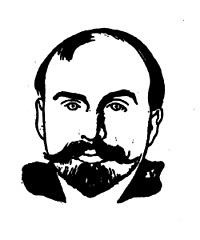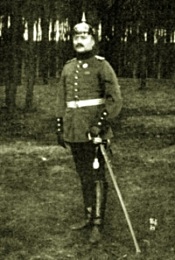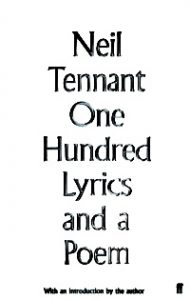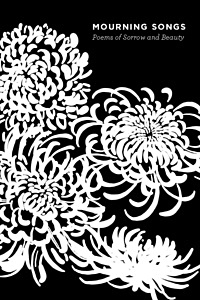Fleurs du Mal Magazine


Or see the index

Les Remorqueurs De Macchabés
Allons, Polyte, un coup de croc:
Vois-tu comme le mec ballotte.
On croirait que c’est un poivrot
Ballonné de vin qui barbote;
Pour baigner un peu sa ribote
Il a les arpions imbibés:
Mince, alors, comme il nous dégote,
Pauv’ remorqueurs de macchabés.
Allons, Polyte, au petit trot,
Le mec a la mine pâlotte:
Il a bouffé trop de sirop;
Bientôt faudra qu’on le dorlote,
Qu’on le bichonne, qu’on lui frotte
Les quatre abatis embourbés.
Vrai, dans le métier on en rote.
Pauv’ remorqueurs de Macchabés.
Allons, Polyte, pas d’accroc,
Tu pionces plus qu’une marmotte,
Nous pinterons chez le bistro:
Le nouveau dab de la gargote
A le nez comme une carotte
Pour tous les marcs qu’il a gobés.
Un verre, ça vous ravigote,
Pauv’ remorqueurs de macchabés!
ENVOI
Prince, Polyte de la flotte,
Plus boueux que trente barbets,
Nous vivons toujours dans la crotte,
Pauv’ remorqueurs de macchabés!
Marcel Schwob
(1867-1905)
Les Remorqueurs De Macchabés
• fleursdumal.nl magazine
More in: Archive S-T, Archive S-T, Marcel Schwob

Spiel
Deine Finger perlen
Und
Kollern Stoßen Necken Schmeicheln
Quälen Sinnen Schläfern Beben
Wogen um mich.
Die Kette reißt!
Dein Körper wächst empor!
Durch Lampenschimmer sinken deine Augen
Und schlurfen mich
Und
Schlürfen schlürfen
Dämmern
Brausen!
Die Wände tauchen!
Raum!
Nur
Du!
August Stramm
(1874-1915)
Spiel, 1914
• fleursdumal.nl magazine
More in: *War Poetry Archive, Archive S-T, Expressionism, Stramm, August

La Madone Amoureuse
Le ciel noir se piquait de torches résineuses,
Scintillantes lueurs, astres pâles d’amour.
Secouant du zénith leurs vapeurs lumineuses
En nuages d’encens au brasier du jour.
Se lustrait du vermeil bruni d’un disque pur,
Coeur jaunissant de fleur immobile et plantée
Comme une pâquerette aux mornes champs d’azur,
A travers l’infini sombre de l’étendue
La blancheur de la Vierge immense s’allongeait,
Colosse de vapeur vaguement épandue
Où le glaive éclatant de la lune plongeait.
Ce n’était plus le marbre aux arêtes précises
Où les Grecs découpaient la chair pâle des dieux,
Mais un esprit flottant en formes indécises
Et versant du brouillard vers la voûte des cieux.
Car l’idéal chrétien est fait de chair meurtrie,
Et d’orbites saignants et de membres broyés,
Tandis qu’abandonnant sa dépouille flétrie
L’âme ailée ouvre l’air de ses bras éployés.
Les dieux morts des anciens vivaient de notre vie;
Ils avaient nos amours; ils avaient nos douleurs;
Ils voyaient nos plaisirs en pâlissant d’envie
Et se vengeaient du rire en nous forçant aux pleurs.
Le Symbole vivant n’a que son existence
Dont la force idéale échappe à nos regards,
Et les martyrs en vain cloués sur leur potence
Interrogeaient l’éther avec leurs yeux hagards.
Mais l’élan passionné de la Vierge Marie
Avait noyé son âme en une ombre de chair
Faite de désirs fous, de luxure pétrie,
Où le cri de l’amour passait comme un éclair.
Cette chair transparente errait dans la pénombre,
Emergeait sous le froid de la Nuit, grelottait,
Et la Vierge trempée aux plis d’un voile sombre
Couvrait de ses deux mains son front et sanglotait.
Ses cheveux blonds coulaient en vagues dénouées
Qui ruisselaient à flots dans le fauve sillon
Des mamelles de brume à sa forme clouées
Par deux boutons puissants casqués de vermillon.
Et ses larmes roulaient en sanglantes rosées,
Jaillissant sous les cils parfumés de ses yeux
Comme un filet gonflé de leurs perles rosées,
Sa chevelure d’or tombait en plis soyeux.
Pendant qu’elle pleurait dans ses chairs cristallines,
Un nuage laiteux en panache fumait,
Fondant leur transparence en teintes opalines
Dont la neige mousseuse et légère écumait.
Et ses pâles cheveux aux couleurs effacées
Lentement noircissaient au creuset de la nuit,
Et l’or blond s’enfuyait de leurs teintes passées (5).
Ainsi que l’or mourant d’une braise s’enfuit
Ses veines se gonflaient de gouttes purpurines
Qui faisaient tressaillir ses nerfs en les baignant;
Un souffle sensuel dilatait ses narines
Et le désir perçait son coeur d’un clou saignant.
La blonde déité qui pleurait diaphane,
En cachant ses yeux bleus de ses longs doigts nacrés,
Avait pris les cheveux d’une brune profane
Et sa chair inhabile à des gestes sacrés.
Ce n’était plus la chaste et mystique Marie
Eclairée du halo pur de la Trinité,
Mais c’était une fille amoureuse, qui crie
Et gémit de désir sur sa virginité.
Elle entendait monter de langoureuses plaintes
De la vasque profonde où la Terre planait;
Le soupir attiédi des premières étreintes
En effluve d’amour vers sa bouche émanait.
Marcel Schwob
(1867-1905)
La Madone Amoureuse
• fleursdumal.nl magazine
More in: Archive S-T, Archive S-T, Marcel Schwob
A Portrait of One: Harry Phelan Gibb
 Some one in knowing everything is knowing that some one is something.
Some one in knowing everything is knowing that some one is something.
Some one is something and is succeeding is succeeding in hoping that thing.
He is suffering.
He is succeeding in hoping and he is succeeding in saying that that is something.
He is suffering, he is suffering and succeeding in hoping that in succeeding in saying that he is succeeding in hoping is something.
He is suffering, he is hoping, he is succeeding in saying that anything is something.
He is suffering, he is hoping, he is succeeding in saying that something is something.
He is hoping that he is succeeding in hoping that something is something.
He is hoping that he is succeeding in saying that he is succeeding in hoping that something is something.
He is hoping that he is succeeding in saying that something is something.
Gertrude Stein
(1874-1946)
A Portrait of One
Harry Phelan Gibb
fleursdumal.nl magazine
More in: Archive S-T, Archive S-T, Gertrude Stein, Stein, Gertrude

Fluch
Du sträubst und wehrst!
Die Brände heulen
Flammen
Sengen!
Nicht Ich
Nicht Du
Nicht Dich!
Mich!
Mich!
August Stramm
(1874-1915)
Fluch, 1914
• fleursdumal.nl magazine
More in: *War Poetry Archive, Archive S-T, Expressionism, Stramm, August

Le Voyage
Oh! sable
Si fin,
Qu’accable
Matin
Mon pas,
J’espère
Là-bas,
Repaire
Du jour,
Mourir!
Et le sable lui dit, en paraissant s’ouvrir:
Marche! Marche toujours!
Marcel Schwob
(1867-1905)
Le Voyage
Portrait: Félix Vallotton
• fleursdumal.nl magazine
More in: Archive S-T, Archive S-T, Félix Vallotton, Marcel Schwob

Siede
Meine Schwäche hält sich mühsam
An den eigenen Händen
Mit meinen Kräften
Spielen deine Knöchel
Fangeball!
In deinem Schreiten knistert
Hin
Mein Denken
Und
Dir im Auggrund
Stirbt
Mein letztes Will!
Dein Hauch zerweht mich
Schreivoll in Verlangen
Kühl
Kränzt dein Tändeln
In das Haar
Sich
Lächelnd
Meine Qual!
August Stramm
(1874-1915)
Siede, 1914
• fleursdumal.nl magazine
More in: *War Poetry Archive, Archive S-T, Expressionism, Stramm, August

Hugo
J’ai un portrait d’Hugo, en face sur le mur,
Et quand je le regarde, et quand le vers est dur
A terminer, son oeil, et sa barbe si douce
Me donnent bon courage et les mots sous son pouce
S’alignent sans efforts et je relis ses vers
Si doux et si charmants, plus calmes que les mers.
“J’étais seul près des flots par une nuit d’étoiles;
“Pas un nuage au ciel, sur la mer pas de voiles,
“Mes yeux plongeaient plus loin que le monde réel
“Et les bois et les monts, et toute la nature
“Semblaient interroger dans un confus murmure
“Les flots des mers, les feux du ciel.”
. . . . . . . . . . . .
. . . . . . . . . . . .
Marcel Schwob
(1867-1905)
Hugo
Mai 1881
Portrait: Félix Vallotton
• fleursdumal.nl magazine
More in: Archive S-T, Archive S-T, Félix Vallotton, Marcel Schwob, Victor Hugo

Singeries
Quand je te vois penché, mon mignon, tout en nage,
Sur le croûton de pain qui te sert de joujou,
Je me repens, mon Dieu, d’avoir pris pour un page
Ce qui n’était pourtant qu’un affreux sapajou.
C’est un maki mordant ses dix doigts avec rage,
Ce faune gentillet, taillé comme un bijou,
Un ouistiti grimpant aux barreaux de sa cage,
Un macaque à poil ras, un singe en acajou.
Ton masque enluminé, sillonné de grimaces,
Semble servir d’album à croquis aux limaces
Pour crayonner l’argent de leurs chemins crochus.
Et les casques noircis qui couronnent tes ongles,
Piqués dans tes cheveux brouillés comme des jungles,
Font penser que tu dois avoir les pieds fourchus.
Marcel Schwob
(1867-1905)
Singeries
Juin 1888
• fleursdumal.nl magazine
More in: #Editors Choice Archiv, Archive S-T, Archive S-T, Marcel Schwob
Over a career that spans four decades and thirteen studio albums with Pet Shop Boys, Neil Tennant has consistently proved himself to be one of the most elegant and stylish of contemporary lyricists.
 Arranged alphabetically, One Hundred Lyrics and a Poem presents an overview of his considerable achievement as a chronicler of modern life: the romance, the break-ups, the aspirations, the changing attitudes, the history, the politics, the pain.
Arranged alphabetically, One Hundred Lyrics and a Poem presents an overview of his considerable achievement as a chronicler of modern life: the romance, the break-ups, the aspirations, the changing attitudes, the history, the politics, the pain.
The landscape of Tennant’s lyrics is recognisably British in character – restrained and preoccupied with the mundane, occasionally satirical, yet also yearning for escape and theatrical release.
Often surprisingly revealing, this volume is contextualised by a personal commentary on each lyric and an introduction by the author which gives a fascinating insight into the process and genesis of writing.
Flamboyant, understated, celebratory and elegiac, Neil Tennant’s lyrics are a document of our times.
Everything I’ve ever done
Everything I ever do
Every place I’ve ever been
Everywhere I’m going to
One Hundred Lyrics and a Poem
Neil Tennant
Hardback
272 pages
English
Poetry
Published 01/11/2018
ISBN13 9780571348909
Publisher Faber & Faber Inc.
18,99 euro
# new books
One Hundred Lyrics and a Poem
Neil Tennant
• fleursdumal.nl magazine
More in: Archive S-T, Archive S-T, Art & Literature News, AUDIO, CINEMA, RADIO & TV, Pet Shop Boys
 Who has not suffered grief?
Who has not suffered grief?
In Mourning Songs, the brilliant poet and editor Grace Schulman has gathered together the most moving poems about sorrow by the likes of Elizabeth Bishop, William Carlos Williams, Gwendolyn Brooks, Neruda, Catullus, Dylan Thomas, W. H. Auden, Shakespeare, Emily Dickinson, W. S. Merwin, Lorca, Denise Levertov, Keats, Hart Crane, Michael Palmer, Robert Frost, Hopkins, Hardy, Bei Dao, and Czeslaw Milosz—to name only some of the masters in this slim volume.
“The poems in this collection,” as Schulman notes in her introduction, “sing of grief as they praise life.” She notes: “As any bereaved survivor knows, there is no consolation. ‘Time doesn’t heal grief; it emphasizes it,’ wrote Marianne Moore.
The loss of a loved one never leaves us. We don’t want it to. In grief, one remembers the beloved. But running beside it, parallel to it, is the joy of existence, the love that causes pain of loss, the loss that enlarges us with the wonder of existence.”
Winner of the Poetry Society of America’s highest award, The Frost Medal, Grace Schulman is the author of seven poetry volumes as well as a book of essays and a new memoir, Strange Paradise: Portrait of a Marriage, about her life with her beloved late husband Jerome. She is a Distinguished Professor of English at Baruch College, CUNY, the former director of the Poetry Center, 92nd Street Y, and was for thirty-five years the poetry editor of The Nation.
Mourning Songs
Poems of sorrow and Beauty
Edited by Grace Schulman
Paperback
96 pages
Publisher: New Directions
Language: English
ISBN-10: 0811228665
ISBN-13: 978-0811228664
Product Dimensions: 4 x 6 inches
Price US 11.95
1 edition: May 28, 2019
# new books
Mourning Songs
Poetry
• fleursdumal.nl magazine
More in: - Book News, Archive S-T, Archive S-T, Art & Literature News, Danse Macabre

Tanz
Milchweiche Schultern!
Augen flirren, flackern!
Blond und schwarz und sonnengolden
Taumeln Haare, wirren, krampfen,
Schlingen Brücken,
Brücken!
Hin
Und rüber
Taumeln, Kitzel,
Bäumen, saugen,
Saugen, züngeln
Schürfen
Blut
Schweres, lustgesträubtes
Blut!
In die Wunden
Hüpfen Töne,
Sielen, bohren,
Wühlen, quirlen,
Fallen kichernd,
Schwellen auf und fressen sich,
Gatten, gatten, schwängern sich,
Bären Schauer
Wahnengroß!
Hilflos surren um die Lichter
Mutterängste
Nach den Kindern,
Die sich winden,
Winden, huschen
Vor den Tritten,
Die sie packen,
Ihre glasen, sichten Leiber
Schinden, scharren,
Pressen, schleudern,
Tückisch abgemessne Lüste
Jagen unter Brunstgestöne,
Brunstgeächze
Und
Gekrächze!
Durch die Wirrnis
Durch die Flirrnis
Blitzt Verstummen!
Jäh zerflattern
Drängen gellend
An die Decke
Sich die Töne,
Klammern, krallen
Scheu verwimmernd
Am Gebälk!
Glotzen nieder,
Wo mit Wuchten
Schlorrt das Keuchen,
Schlappet
Ringsum an den Wänden
Seinen ungefügen Leib,
Unzahlmäulig
zuckt und schnauft!
An die angstzerglühten Herzen
Reißen flammend hoch die Lichter
Ihre hetzverstörten Kinder,
Die in Irren, Wirren
Zitternd
Ob der ungewohnten Ruhe
Ab sich tasten
Und sich streicheln
Gegenseitig
Hell von Staunen,
Daß sie leben noch,
Sie leben!
Zagig finden sie das Lächeln,
Fluten leise, fluten, fluten,
Reichen summend sich die Hände,
werden warm
Und
Schwingen Reigen!
Da
In Peitschlust, Streitdurst, Quälsucht
Vollgesogen
Vom Gebälke
Stiebt das Gellen!
Schrillt unbändig,
Ueberschlägt sich,
Purzelt, flattert,
Springt und stöbert,
Federt, pumpelt auf
Das Untier,
Das
Mit tausend Füßen aufschrickt,
Trippelt, trappelt,
Trappelt, grappelt,
Gell gedrängelt
Von den Tönen,
Die zerrasseln,
Niederprasseln,
Peitschen, schlagen, fiebern, kosen
Und im Wirbel
Wringen, wiegen
Schwelles,
Blaßhellrotes Fleisch!
Milchweiche Schultern!
Augen . . .
August Stramm
(1874-1915)
Tanz, 1914
• fleursdumal.nl magazine
More in: *War Poetry Archive, Archive S-T, Expressionism, Stramm, August
Thank you for reading Fleurs du Mal - magazine for art & literature